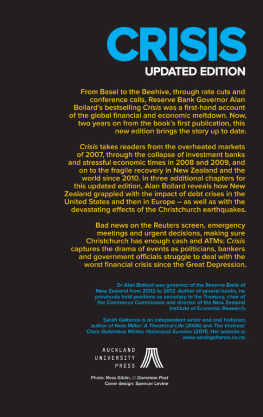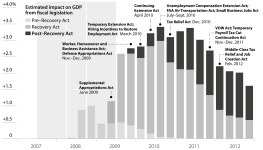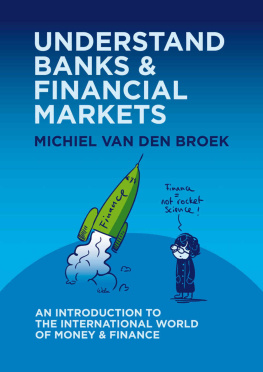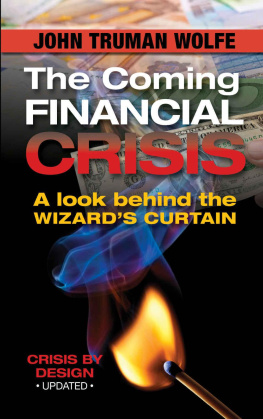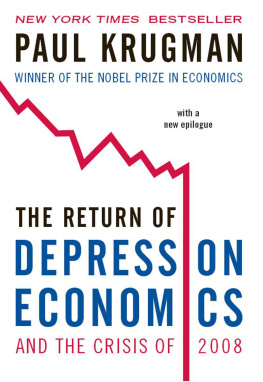THE SEVEN SINS
OF WALL STREET

Copyright 2014 by Bob Ivry.
Published in the United States by PublicAffairs,
a Member of the Perseus Books Group
All rights reserved.
No part of this book may be reproduced in any manner whatsoever without written permission except in the case of brief quotations embodied in critical articles and reviews. For information, address PublicAffairs, 250 West 57th Street, 15th Floor, New York, NY 10107.
PublicAffairs books are available at special discounts for bulk purchases in the U.S. by corporations, institutions, and other organizations. For more information, please contact the Special Markets Department at the Perseus Books Group, 2300 Chestnut Street, Suite 200, Philadelphia, PA 19103, call (800) 810-4145, ext. 5000, or e-mail .
Book design by Linda Mark
Library of Congress Cataloging-in-Publication Data
Ivry, Bob.
The seven sins of Wall Street : big banks, their Washington lackeys, and the next financial crisis / Bob Ivry.
pages cm
Includes bibliographical references and index.
ISBN 978-1-61039-366-9 (e-book)
1. FinanceUnited States. 2. Banks and bankingUnited States.
3. Financial crisesUnited States. 4. United StatesEconomic policy.
I. Title.
HG181.I97 2014
332.0973dc23
2013048863
First Edition
10 9 8 7 6 5 4 3 2 1
For Janelle
CONTENTS
Cast of Characters
Ladies and gentlemen, the six largest American banks, listed in alphabetical order:
Bank of America
Home: Charlotte, North Carolina
Scouting report: Hits below its weight. Kryptonite: mortgage servicing
TARP borrowing: $45 billion
Peak Federal Reserve borrowing: $91.4 billion on February 26, 2009
Total assets, 2006: $1.36 trillion
Total assets, 2013: $2.17 trillion
Percentage change: +60
Citigroup
Home: New York
Scouting report: Cant get out of its own way
TARP borrowing: $45 billion
Peak Federal Reserve borrowing: $99.5 billion on January 20, 2009
Total assets, 2006: $1.59 trillion
Total assets, 2013: $1.88 trillion
Percentage change: +18
Goldman Sachs
Home: New York
Scouting report: Biological imperative: money
TARP borrowing: $10 billion
Peak Federal Reserve borrowing: $69 billion on December 31, 2008
Total assets, 2006: $759 billion
Total assets, 2013: $959 billion
Percentage change: +26
JPMorgan Chase
Home: New York
Scouting report: Performance-enhancing drugs suspected
TARP borrowing: $25 billion
Peak Federal Reserve borrowing: $68.6 billion on October 1, 2008
Total assets, 2006: $1.34 trillion
Total assets, 2013: $2.39 trillion
Percentage change: +78
Morgan Stanley
Home: New York
Scouting report: Smallest of the six and getting smaller
TARP borrowing: $10 billion
Peak Federal Reserve borrowing: $107 billion on September 29, 2008
Total assets, 2006: $960 billion
Total assets, 2013: $801 billion
Percentage change: 16
Wells Fargo
Home: San Francisco
Scouting report: Quietly eating its competitors lunch
TARP borrowing: $25 billion
Peak Federal Reserve borrowing: $45 billion on February 26, 2009
Total assets, 2006: $492 billion
Total assets, 2013: $1.44 trillion
Percentage change: +193
My daughter called me from school one day and said, Dad, whats a financial crisis? And without trying to be funny, I said, Its something that happens every five to seven years.
Jamie Dimon, chief executive officer of JPMorgan Chase, January 13, 2010
W HEN REBECCA BLACK BOUGHT THE THREE-BEDROOM house at 698 Hazelwood Road in southwest Memphis in May 2005 and moved in with her two teenage sons, it was a quiet community. Children played in the street, and neighbors tended their yards. She could afford the $57,000 mortgage if she skipped oil changes for the car and served the boys store-brand groceries.
Then trouble came.
Her next-door neighbor died, and his family lost the house. Across the street, there were two foreclosures. One morning, the abandoned house three doors down had gang graffiti spray-painted on the side. A girl in the neighborhood pulled a gun on her son.
In 2010, it was Blacks turn to go. Shed gotten one of those 228 mortgages that slowly strangled so many borrowerstwo years of a low, fixed interest rate followed by twenty-eight years of rising paymentsand shed reached her limit. I was crazy about that house, and so proud of it, said Black, a US Army veteran. I just didnt have enough money. She got a letter from her mortgage company saying it was starting the foreclosure process, and rather than hear a knock on the door one morning from a sheriffs deputy ordering her to get out, Black packed whatever she could fit into her Chevy Astro and left the home she loved so well. By 2011, the property two doors down had sold for $3,000, and Black was in bankruptcy.
If homes are living things, sustaining their inhabitants and contributing to the vitality of their communities, then Hazelwood Road is dying. On nine of the fifteen parcels on Blacks side of the street, houses sit empty or have been bulldozed flat, or the lots have reverted to a tangle of sumac and poison ivy.
I visited Hazelwood Road in the hottest part of 2012, four years after bad mortgages triggered a meltdown in the worlds most resilient economy. The biggest banks were reporting record profits, and government agencies were trumpeting statistics showing that a robust recovery from the worst hard times since Dorothea Langes Migrant Mother was just around the corner. And though Hazelwood Road was never a paradisea place where Black could buy a three-bedroom house for $57,000 couldnt be described as anybodys ideal of location, location, locationconditions there indicated that something essential about America had shifted in the aftermath of the 2008 financial crisis. An economic and political apartheid had emerged. Perhaps fairness had been an illusion and upward mobility just a dream before things went to hell. Still, hope for advancement was that much tougher for most people to sustain after 2008. And just as the crisis was no accident but rather a tragic convergence of stupidity, poor oversight, and, more than anything, a neighbor-versus-neighbor waging of financial warfare, so too were its consequences a result of calculation. Washington, in the form of the federal government and the Federal Reserve, the countrys bank for banks, had sacrificed the common good for the profit of the few. By coddling the biggest banksby rewarding their mischief rather than at least laying down roadblocks of disincentives for them to quit their misconductWashington made certain that the country continued down a path of self-aggrandizement that led to a perversion of American capitalism and the slow demolition of democracy.
Next page


